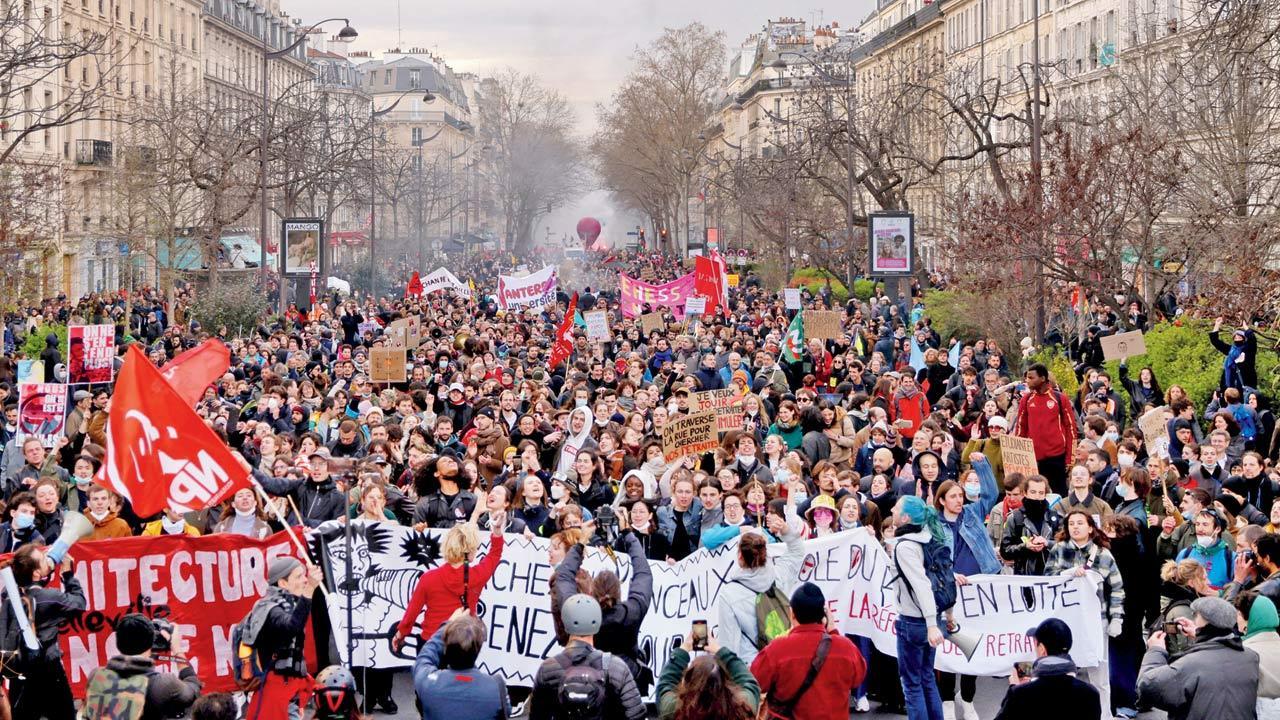However, President Emmanuel Macron, refused to nominate a government led by the left-wing New Popular Front alliance (NFP), after which leaders have again backed protests against him

Protests in France against Macron’s pension bill. File pic/X
France’s left-wing, four-party coalition, won the most seats in last month’s parliamentary elections and said its candidate, Paris civil servant Lucie Castets, should be named prime minister, despite falling way short of a majority.
ADVERTISEMENT
However, President Emmanuel Macron, refused to nominate a government led by the left-wing New Popular Front alliance (NFP), after which leaders have again backed protests against him.
Macron said France needed institutional stability and the left could not win a confidence vote that would come immediately from its opponents in parliament. Macron, whose centrist Ensemble alliance came second in the election, began new consultations with party leaders on Tuesday.
“France needs institutional stability and the left cannot win a confidence vote that would come immediately from its opponents in parliament,” he said, appealing to three of the four left-wing parties to work with “other political forces” to deal with the impasse.
‘Arrest of Telegram CEO wasn’t political’
French President Emmanuel Macron said Monday that the arrest in France of the CEO of the popular messaging app Telegram, Pavel Durov, wasn’t a political move but part of an independent investigation. Macron posted on the social media platform X that his country “is deeply committed” to freedom of expression but “freedoms are upheld within a legal framework, both on social media and in real life, to protect citizens and respect their fundamental rights.” Durov was detained in a judicial inquiry involving 12 alleged criminal violations.
This story has been sourced from a third party syndicated feed, agencies. Mid-day accepts no responsibility or liability for its dependability, trustworthiness, reliability and data of the text. Mid-day management/mid-day.com reserves the sole right to alter, delete or remove (without notice) the content in its absolute discretion for any reason whatsoever
 Subscribe today by clicking the link and stay updated with the latest news!" Click here!
Subscribe today by clicking the link and stay updated with the latest news!" Click here!







